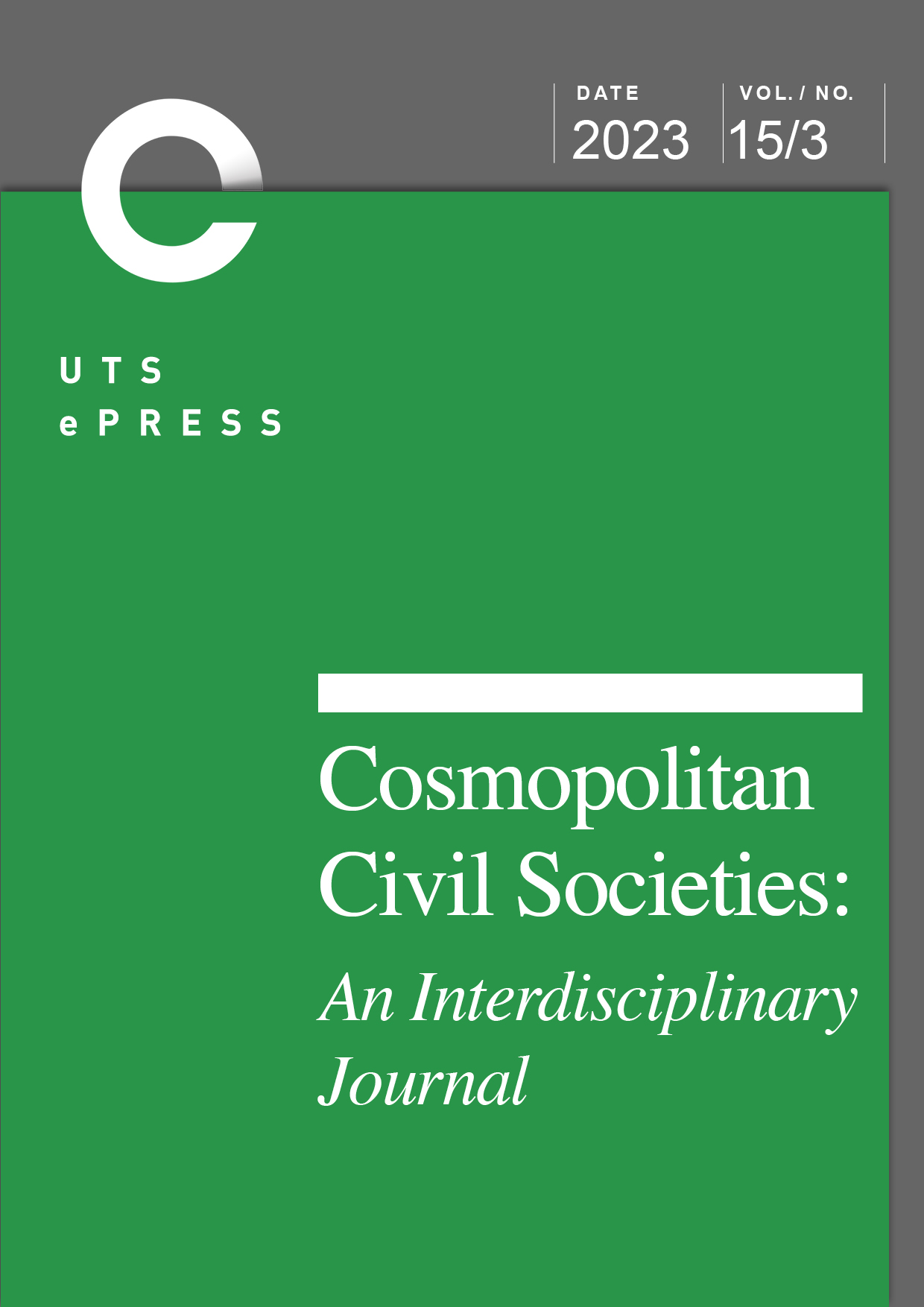Practice of Patriotism, Ethnocentrism, Nationalism and Cosmopolitanism in India: An Interrogation
Main Article Content
Abstract
The central concern of this paper is to examine intersectionalities between the ideals of cosmopolitanism, patriotism, ethnocentrism and nationalism in general, and their changing facets and interfaces in India. It argues that being a multiethnic and plural society, the civilisational ethos of India is conventionally founded on cosmopolitanism. The practice of patriotism and its accommodative principle of unity in diversity have provided the building blocks to this cosmopolitanism. During India’s independence struggle these ideals encountered the forces of modernism, ethnocentrism, communalism and ethno-nationalism. In contemporary India the forces of economic neoliberalism, developmental imbalances and persisting social and economic inequalities, post modernism, hyper modernism, populism, and cultural politics have become part of social reality. Notwithstanding the prevalence of the ideals of cosmopolitanism and civilisational interactive processes, these encounters have brought cumulative fluidity in the social, economic and political orientations in contemporary society, and have created further space for the influence of ethnocentrism and cultural politics as a means to remain rooted in society.
Article Details
Section
Authors who submit articles to this journal from 31st March 2014 for publication, agree to the following terms:
a) Authors retain copyright and grant the journal right of first publication with the work simultaneously licensed under a Creative Commons Attribution License that allows others to share and adapt the work with an acknowledgement of the work's authorship and initial publication in this journal.
b) Authors are able to enter into separate, additional contractual arrangements for the non-exclusive distribution of the journal's published version of the work (e.g., post it to an institutional repository or publish it in a book), with an acknowledgement of its initial publication in this journal.
c) Authors are permitted and encouraged to post their work online (e.g., in institutional repositories or on their website) prior to and during the submission process, as it can lead to productive exchanges, as well as earlier and greater citation of published work (See The Open Access Citation Advantage Service). Where authors include such a work in an institutional repository or on their website (ie. a copy of a work which has been published in a UTS ePRESS journal, or a pre-print or post-print version of that work), we request that they include a statement that acknowledges the UTS ePRESS publication including the name of the journal, the volume number and a web-link to the journal item.
d) Authors should be aware that the Creative Commons Attribution (CC-BY) License permits readers to share (copy and redistribute the work in any medium or format) and adapt (remix, transform, and build upon the work) for any purpose, even commercially, provided they also give appropriate credit to the work, provide a link to the license, and indicate if changes were made. They may do these things in any reasonable manner, but not in any way that suggests you or your publisher endorses their use.
For Volume 5 No 3 (2013) and before, the following copyright applied:
Authors submitting articles to UTSePress publications agree to assign a limited license to UTSePress if and when the manuscript is accepted for publication. This license allows UTSePress to publish a manuscript in a given issue. Articles published by UTSePress are protected by copyright which is retained by the authors who assert their moral rights. Authors control translation and reproduction rights to their works published by UTSePress. UTSePress publications are copyright and all rights are reserved worldwide. Downloads of specific portions of them are permitted for personal use only, not for commercial use or resale. Permissions to reprint or use any materials should be directed to UTSePress.
